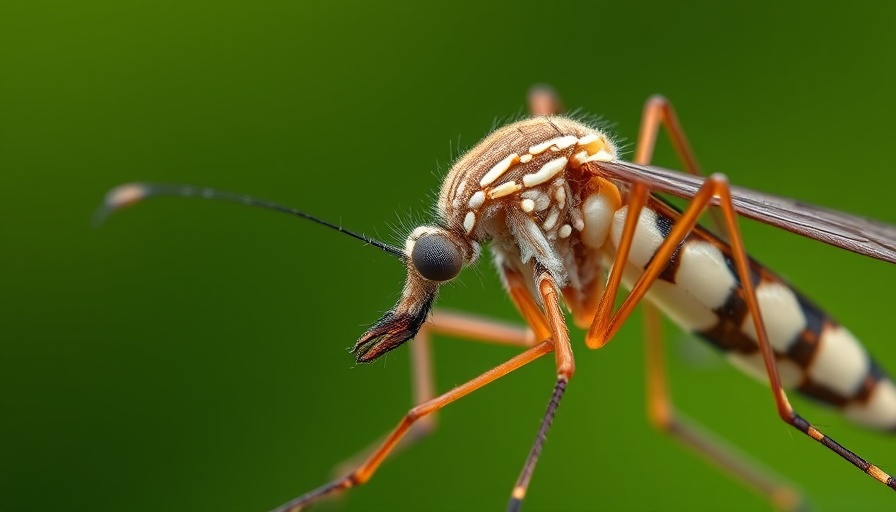
Understanding the Chikungunya Virus: A Re-emerging Threat
The Chikungunya virus, primarily spread by Aedes mosquitoes, is regaining attention in 2025 as an unusually large outbreak begins to make waves across numerous countries. Health officials from around the globe are sounding alarms as the virus’s footprint expands, echoing the 2004-2005 outbreaks that brought similar concerns. This is a particularly pressing issue for retirees and active seniors, many of whom enjoy outdoor activities and may be unaware of the threat posed by these mosquitoes.
The Global Reach: 119 Countries at Risk
As reports from the World Health Organization indicate, a staggering 119 countries are identified as at risk for this mosquito-borne virus. The source of the outbreak can be traced back to Indian Ocean nations like La Reunion, Mayotte, and Mauritius, which have experienced devastating cases and high rates of infection. An estimated one-third of La Reunion’s population has already contracted the virus, showcasing how rapidly it can propagate across borders.
Health Impacts: More Than Just a Fever
While the Chikungunya virus is rarely fatal, its health impacts can be pronounced. In addition to high fever, many experience debilitating joint pain, which can persist long after initial symptoms have cleared. For many seniors, particularly those in their 60s and beyond, the risk of long-term disability due to joint pain is concerning. Engaging in preventive measures, such as wearing protective clothing and using bug spray, is crucial, especially for those enjoying leisurely activities outside.
Preventative Measures: Stay Safe!
The heightened awareness surrounding this virus comes with actionable advice: those living in or traveling to areas with heightened risks must take protective measures seriously. The CDC advises that residents of southern states in the U.S. remain vigilant in wearing long sleeves and applying insect repellent. This is paramount as even a small increase in local mosquito populations can lead to higher risks of transmission and potential outbreaks.
Vaccines Available: A Beacon of Hope
Currently, two vaccines are available for those in higher risk countries such as Brazil, Kenya, Thailand, and the Philippines. Vaccines are a crucial line of defense against widespread outbreaks, but for older adults, who constitute a significant percentage of those at risk, general awareness and personal preventive actions remain critical. Seniors should educate themselves about the virus and consider consultation with healthcare providers regarding vaccination and overall health management.
Conclusion: Taking Charge of Health
As the Chikungunya virus spreads, understanding its implications and taking preventative measures become paramount. For retirees and seniors in active lifestyles, it is essential to stay informed. To navigate these challenges, consider consulting local experts in healthcare, especially regarding Medicare benefits to ensure proper coverage should health issues arise from potential infection.
For assistance tailored to your needs, don’t hesitate to contact Terrijo Parker at 231-571-6100. Your health and wellness matter, and having the right support system can make a world of difference.
 Add Row
Add Row  Add
Add 




Write A Comment